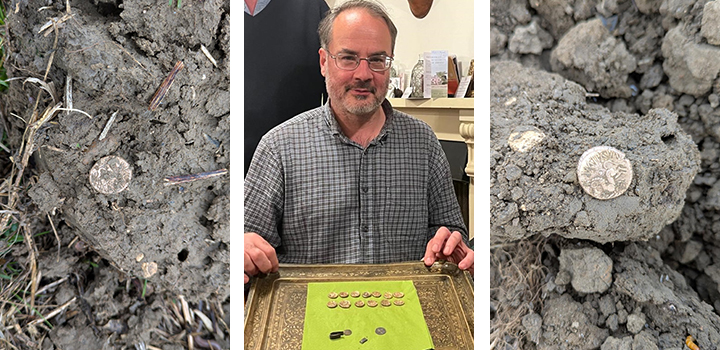Remembering John Charmley
By: Communications

John Charmley, whose death has been announced at the age of 69, was a prominent historian at UEA for over 35 years, a scholar with an international reputation, and Head of the School of History for ten years.
John came from a working-class background in Birkenhead, where he was born in 1955. He grew up in a household ‘without books’, as he later reflected, but his talent for history took him to Oxford, which nurtured his interest in modern British politics and foreign policy. In 1979 he was appointed to a lectureship at UEA, even before he had completed his DPhil thesis on Britain and General de Gaulle.
John’s research focused on Conservative politicians. His first two books were biographies of interwar statesmen: Duff Cooper and Lord Lloyd. The third, Chamberlain and the Lost Peace, focused on the question of appeasement. It was ambitious and argumentative, presenting an unfashionably sympathetic view of its subject.
In 1992, he took up a year’s Fulbright Professorship at Fulton, Missouri, where Churchill had made his ‘Iron Curtain’ speech. John was there when perhaps his most important contribution to scholarship was published. Appropriately enough, it was a biography of the UK’s wartime leader, Churchill: The End of Glory (1993). In it, he presented an eloquently damning critique of Churchill’s failings, which caused an international sensation. A sequel examining Anglo-American relations followed in 1995.
In the wake of The End of Glory, John’s sharp wit, eye for a memorable phrase and readiness to tackle controversial topics gave him a national profile. Writing for newspapers and appearing on television, he relished the opportunity to engage with an audience far beyond academia.
Away from the headlines, he was a significant contributor to teaching and administration. John was a popular tutor: his modules were often oversubscribed; his former students recall lively lectures and seminars with free-flowing discussion.
Always an active contributor to departmental and Faculty administration, in 1994 John was a keen supporter of the initiative to establish the School of History, which drew together historians from three inter-disciplinary Schools. He had a particular flair for admissions work, in which he took a leadership role. Awarded a Chair in the late 1990s, he remained an active researcher, completing several more books. Of these, Splendid Isolation? and The Princess and the Politicians both focused on the international history of the nineteenth century, which had always fascinated him.
In 2002, John became the fourth Dean of the School of History, serving for ten years at the helm of the School, during which he metamorphosed into a Head of Department. The change of title made no difference to the task, to which he brought an extraordinary energy. He oversaw a period of expansion, presiding over the appointment of leading scholars and a cohort of early career historians. When he moved on in 2012, he left behind a School more diverse in its membership and its breadth of interests and teaching.
Subsequently serving as Head of the Interdisciplinary Institute for the Humanities and University Director of Employability, John left UEA in 2016 to become Pro-Vice Chancellor at St Mary’s University in Twickenham, from where he retired in 2021. In all senses a life enhancer, he is survived by his wife Rachael, his sons Gervase, Gerard and Christian, stepdaughters Siobhan and Isla, and three grandchildren.
Related Articles

History professor strikes gold with remarkable Iron Age discovery
After discovering a rare hoard of Iron Age gold coins in Suffolk, Prof Tom Licence hopes to use some of the proceeds to support local archaeological digs, following their auction in London.
Read more
Harvard Law School’s ‘copy’ of Magna Carta revealed as original
Researchers at UEA and Kings College London have discovered that a ‘copy’ of Magna Carta owned by Harvard Law School is in fact a rare original from 1300.
Read more